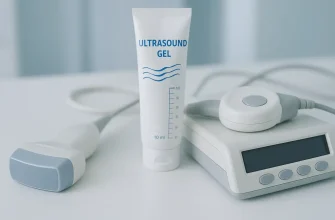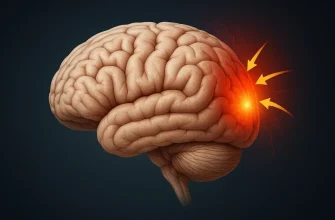Hip pain at night is not just an annoyance; it can disrupt your sleep, affect your daily activities, and even signal underlying health issues.
Distribution of Nighttime Hip Pain Causes
This horizontal bar chart illustrates the common causes of nighttime hip pain. Arthritis accounts for 40%, followed by bursitis at 30%, sciatica at 20%, and muscle strain at 10%.
Understanding the Causes of Nighttime Hip Pain
1. Arthritis
Osteoarthritis or rheumatoid arthritis in the hip joint is a common culprit. Inflammation and joint degeneration can worsen at night due to reduced activity and circulation.
- Key Symptoms: Stiffness, swelling, and a deep ache in the hip.
- Fact: Over 32.5 million adults in the U.S. live with arthritis, according to the CDC.
- Case Example: Jane, a 58-year-old teacher, struggled with worsening hip pain at night due to osteoarthritis. Switching to a joint-friendly diet and incorporating physical therapy reduced her discomfort significantly.
2. Bursitis
Hip bursitis occurs when the bursae (fluid-filled sacs cushioning your joints) become inflamed. Lying on the affected side often exacerbates the pain.
- Key Symptoms: Sharp pain on the outer hip that may spread to the thigh.
- Common Trigger: Repeated pressure or overuse.
- Case Example: Mike, a recreational cyclist, experienced bursitis after weeks of intense training. He found relief through rest, targeted stretches, and cortisone injections.
3. Tendinitis or Muscle Strain
Overworked hip tendons or muscles, often from excessive exercise or poor posture, can cause discomfort, particularly when the body relaxes at night.
- Key Symptoms: Soreness, tenderness, or a pulling sensation.
- Did You Know?: The hip’s intricate muscle structure makes it prone to strain.
- Case Example: Emily, a fitness enthusiast, developed tendinitis from improper squatting techniques. After consulting a physical therapist, she improved her form and recovered fully.
4. Sciatica
Irritation of the sciatic nerve can lead to radiating pain that affects the hip, especially when lying down.
- Key Symptoms: Shooting pain from the lower back to the hip and leg.
- Interesting Note: Poor mattress support can aggravate sciatica symptoms.
- Case Example: Robert, a truck driver, experienced sciatica due to prolonged sitting. Adjusting his seating posture and using a firmer mattress alleviated his symptoms.
5. Hip Fractures
While more common in older adults, hip fractures can cause severe, persistent pain that worsens at night.
- Key Symptoms: Intense pain, difficulty moving, and visible swelling.
- Fact: Hip fractures are a leading cause of hospitalization in individuals over 65.
- Case Example: Linda, a 70-year-old retiree, fractured her hip in a fall. Timely surgery and rehabilitation helped her regain mobility within months.
6. Other Potential Causes
- Poor Sleep Posture: Twisting or prolonged pressure on one side.
- Mattress Issues: A mattress that’s too firm or too soft can strain your hips.
- Referred Pain: Conditions like hernias or pelvic issues may radiate pain to the hip.
- Case Example: A poorly aligned mattress left Sarah, a college student, with nagging hip pain. Switching to a supportive mattress resolved her discomfort within weeks.
Impact of Weight on Nighttime Hip Pain
| Weight Category | Reported Hip Pain (%) |
|---|---|
| Underweight | 20% |
| Normal Weight | 35% |
| Overweight | 60% |
| Obese | 80% |
This chart demonstrates the correlation between weight categories and the prevalence of nighttime hip pain. Obese individuals report the highest incidence at 80%, compared to 20% among underweight individuals.
How to Alleviate Nighttime Hip Pain
1. Modify Your Sleep Environment
- Mattress Matters: Use a medium-firm mattress that supports your body’s natural alignment.
- Effectiveness: 8/10
- Cost: $300–$1,000 for a quality mattress.
- Duration: Long-term.
- Pillows: Place a pillow between your knees to reduce pressure on your hips.
- Effectiveness: 7/10
- Cost: $20–$50.
- Duration: Immediate relief.
Types of Mattresses and Their Impact on Hip Pain
| Mattress Type | Effectiveness (%) |
|---|---|
| Medium-Firm Mattress | 85% |
| Memory Foam Mattress | 75% |
| Soft Mattress | 50% |
| Firm Mattress | 60% |
This chart illustrates the effectiveness of different mattress types in reducing hip pain. Medium-firm mattresses lead with 85% effectiveness, followed by memory foam at 75%, firm mattresses at 60%, and soft mattresses at 50%.
2. Stretching and Strengthening Exercises
- Perform gentle stretches for the hip flexors and glutes before bed.
- Effectiveness: 9/10
- Cost: Free (if done at home).
- Duration: Short-term relief, with long-term benefits if done regularly.
- Incorporate low-impact exercises, such as swimming or yoga, to strengthen hip muscles.
- Effectiveness: 8/10
- Cost: $0–$50 per session.
- Duration: Long-term.
3. Apply Heat or Ice
- Use a heating pad to relax muscles or an ice pack to reduce inflammation.
- Effectiveness: 6/10
- Cost: $10–$30.
- Duration: Immediate but temporary relief.
4. Pain Relievers
- Over-the-counter options like ibuprofen or acetaminophen can provide temporary relief.
- Effectiveness: 7/10
- Cost: $5–$20 per bottle.
- Duration: 4–8 hours.
5. Consult a Specialist
Persistent or worsening pain may require evaluation by an orthopedic doctor or physical therapist.
Effectiveness of Pain Relief Methods
| Method | Effectiveness (%) |
|---|---|
| Stretching Exercises | 90% |
| Applying Heat/Ice | 70% |
| Over-the-Counter Pain Relievers | 65% |
| Physical Therapy | 85% |
| Massage Therapy | 60% |
This chart highlights the effectiveness of various pain relief methods, with stretching exercises leading at 90%, followed by physical therapy at 85% and applying heat/ice at 70%.
Expert Opinion
“Hip pain at night is often linked to lifestyle factors. Regular exercise and proper sleep ergonomics are key. For those with chronic conditions like arthritis, tailored physical therapy can make a significant difference. Don’t ignore persistent symptoms; early intervention prevents complications.” — Dr. Sarah Thompson, Orthopedic Specialist.
“Many patients find that addressing inflammation through simple dietary changes can ease hip pain significantly. Foods rich in omega-3 fatty acids and antioxidants are particularly helpful.” — Dr. Michael Reyes, Nutrition Expert.
“From my experience, hip pain that worsens at night often indicates underlying postural or alignment issues. Regular check-ins with a physical therapist can uncover and correct these problems.” — Emma Lane, Certified Physical Therapist.
When to See a Doctor
Seek medical attention if you experience:
- Sudden, severe pain.
- Inability to move the hip or leg.
- Signs of infection: redness, warmth, or fever.
- Persistent pain despite home remedies.
Editorial Advice
Don’t let nighttime hip pain steal your sleep and energy. Start by adjusting your sleeping environment, incorporating gentle exercises, and consulting a specialist if necessary. Proactive care can restore comfort and improve your quality of life.









